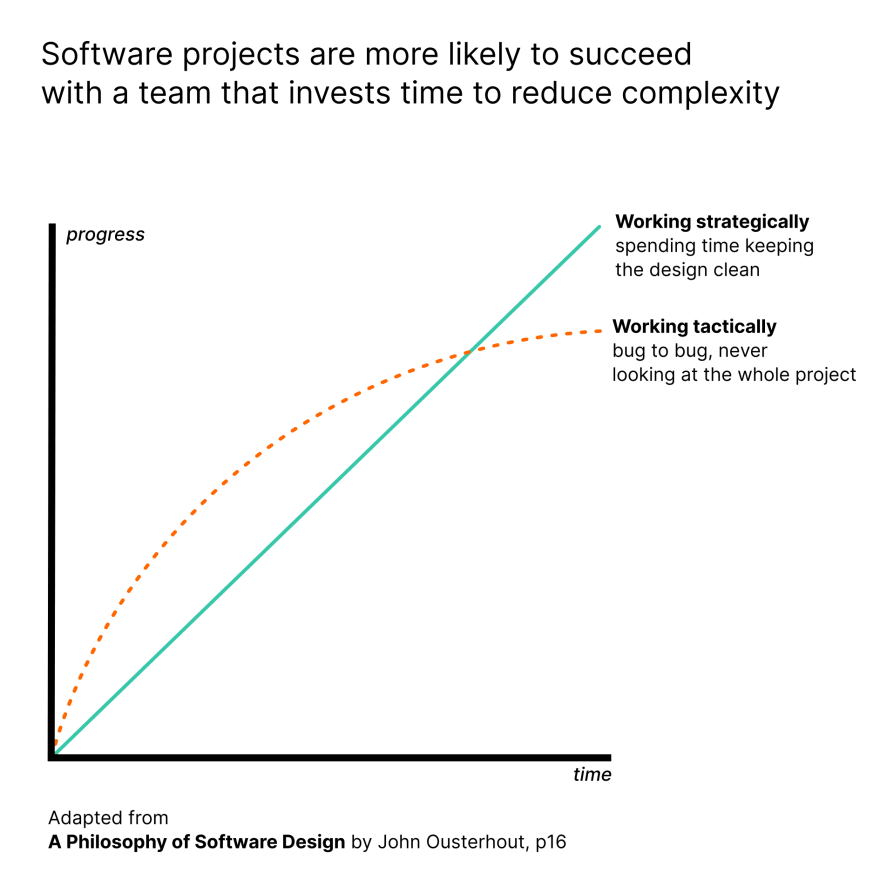As software systems get bigger, they get more complex. Complex software is harder to improve. John Ousterhout, a professor at Stanford University, has recently published a really neat book that provides many tips for making life simpler: A Philosophy if Software Design.
The overall suggestion is that if your team is struggling with a spaghetti code base, its members should be investing about 10-20% of their total development time cleaning it up.
The book's title is misleading. It mentions "philosophy", but the book i very practical in nature. It's small and short. Its messages are clear.
Why bother cleaning up the code?
If your team works smart, it's more likely to finish the project. Squishing each bug as fast as possible feels faster, but you're likely to be adding technical debt over time.
What can be done?
The book provides lots of advice, often drawing from experience reviewing code. Here are just a few tips that I've taken from the book.
- Focus on your interfaces and be deliberate about what you're abstracting. The sign of an effective interface is being simpler than the implementation. In a sense, the added complexity of a new interface needs to justify its existence.
- Rules such as "a function should be no more than n lines long" is arbitrary an ineffective. Functions should be as long as they need to be to get their job done. Breaking functions into multiple sub-functions just adds complexity without benefit.
- Comments should document what the code can't. Comments that are purely pseudo-code are a distraction.
- Design around the critical path. This is a really interesting one to me. It makes it much easier to think about where to start with the process of cleaning up a big code base, rather than worrying about the size of the whole task.
Will it help me?
I'm a team member on a code base with over 1 million lines of code. We've got levels upon levels of complexity built up over nearly a decade of development. Many attempts at reducing complexity have actually back-fired. They were never quite complete. That means that there are now two things to fix up, instead of one.
The book has given me a fresh perspective (& some hope!). It's also given me a new toolkit. I really appreciate the insight provided on almost every page.
Is it worth buying?
If your team is struggling under the weight of technical debt, then definitely. If you're new to programming, probably. It's an accessible language-agnostic guide to becoming a better programmer. It's been a huge benefit to me.
Image credits: Cover image by Rick Mason/Unsplash. Figure by Tim McNamara (@timclicks ).




Top comments (0)